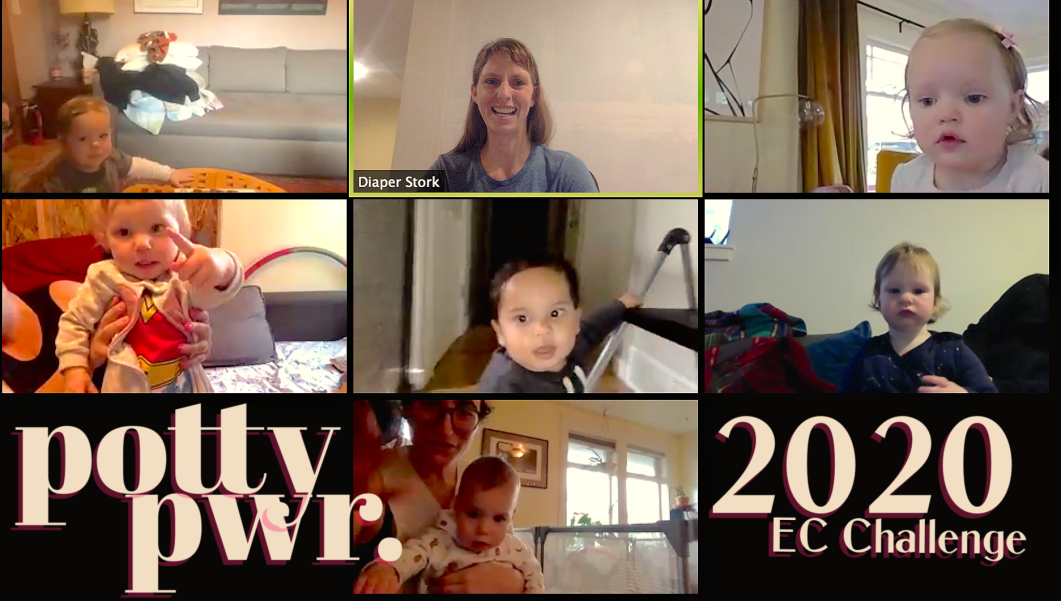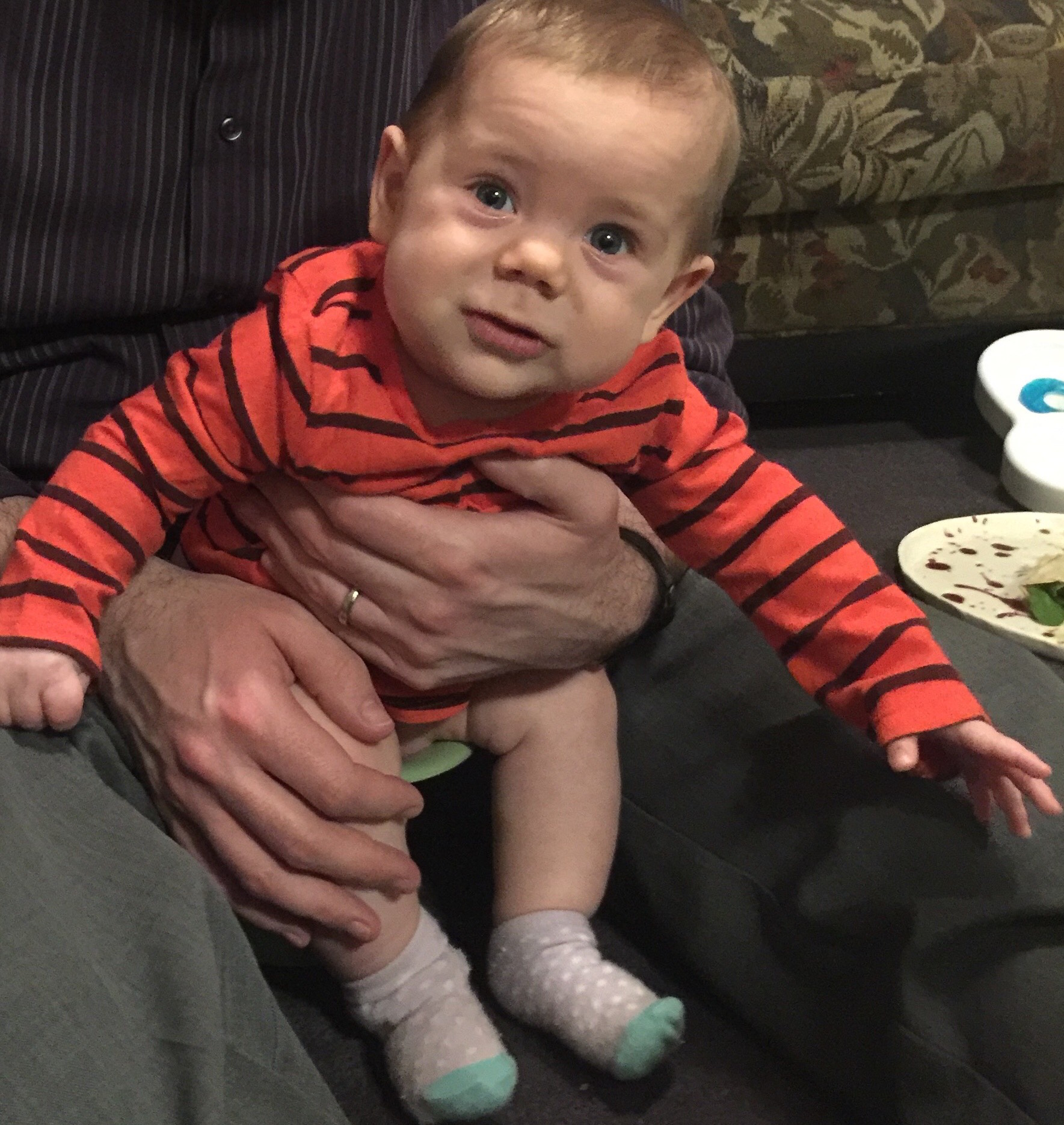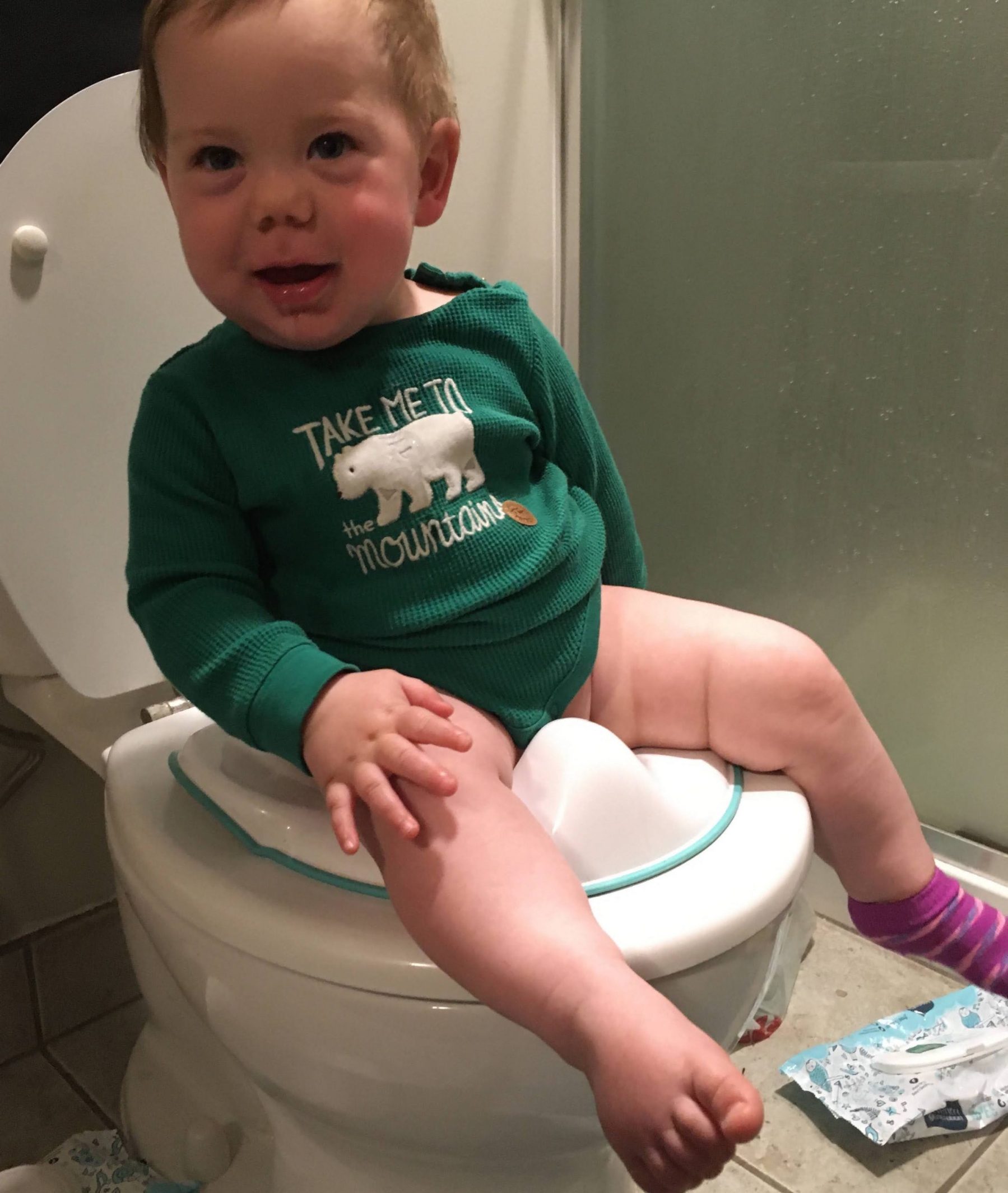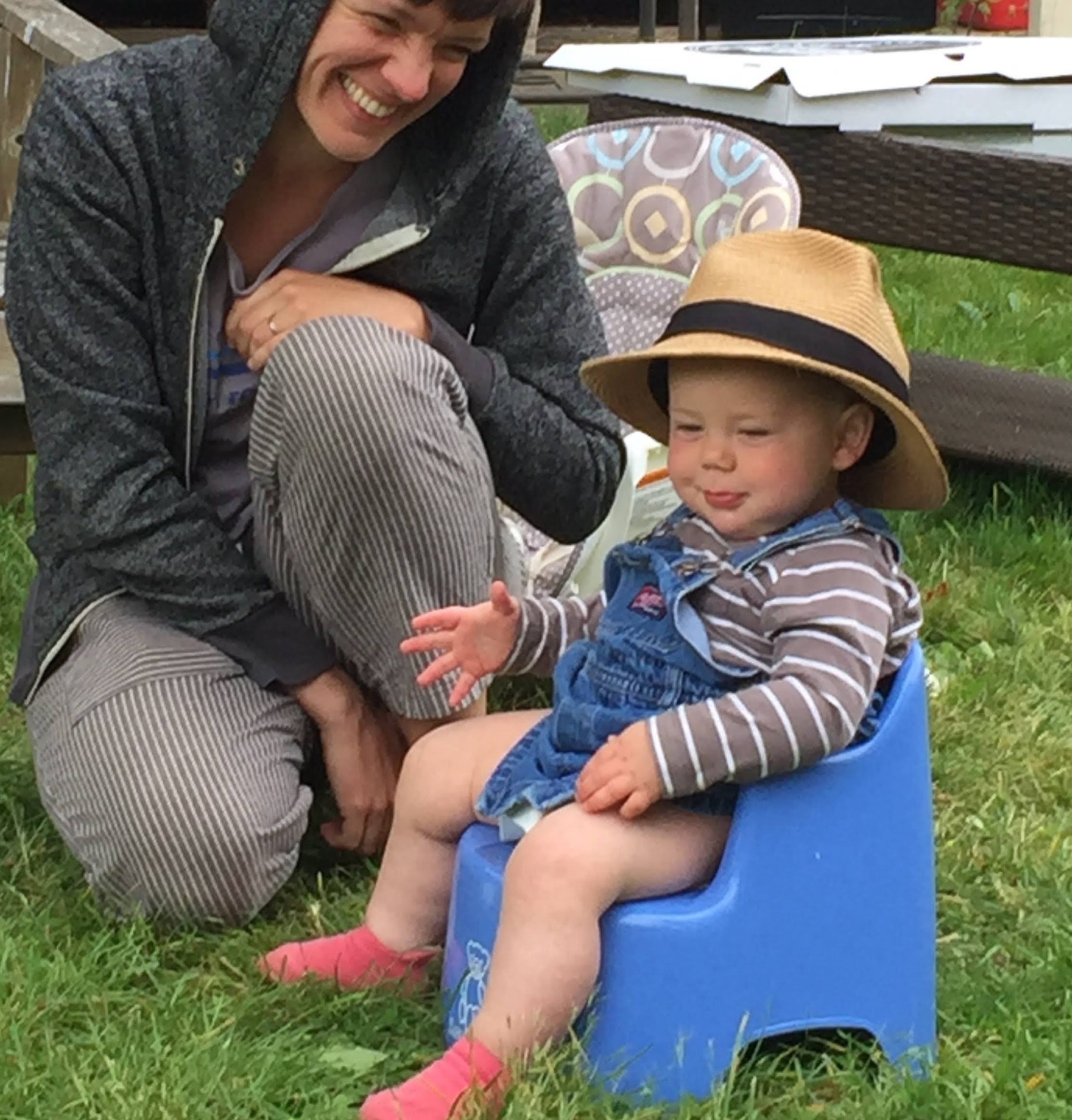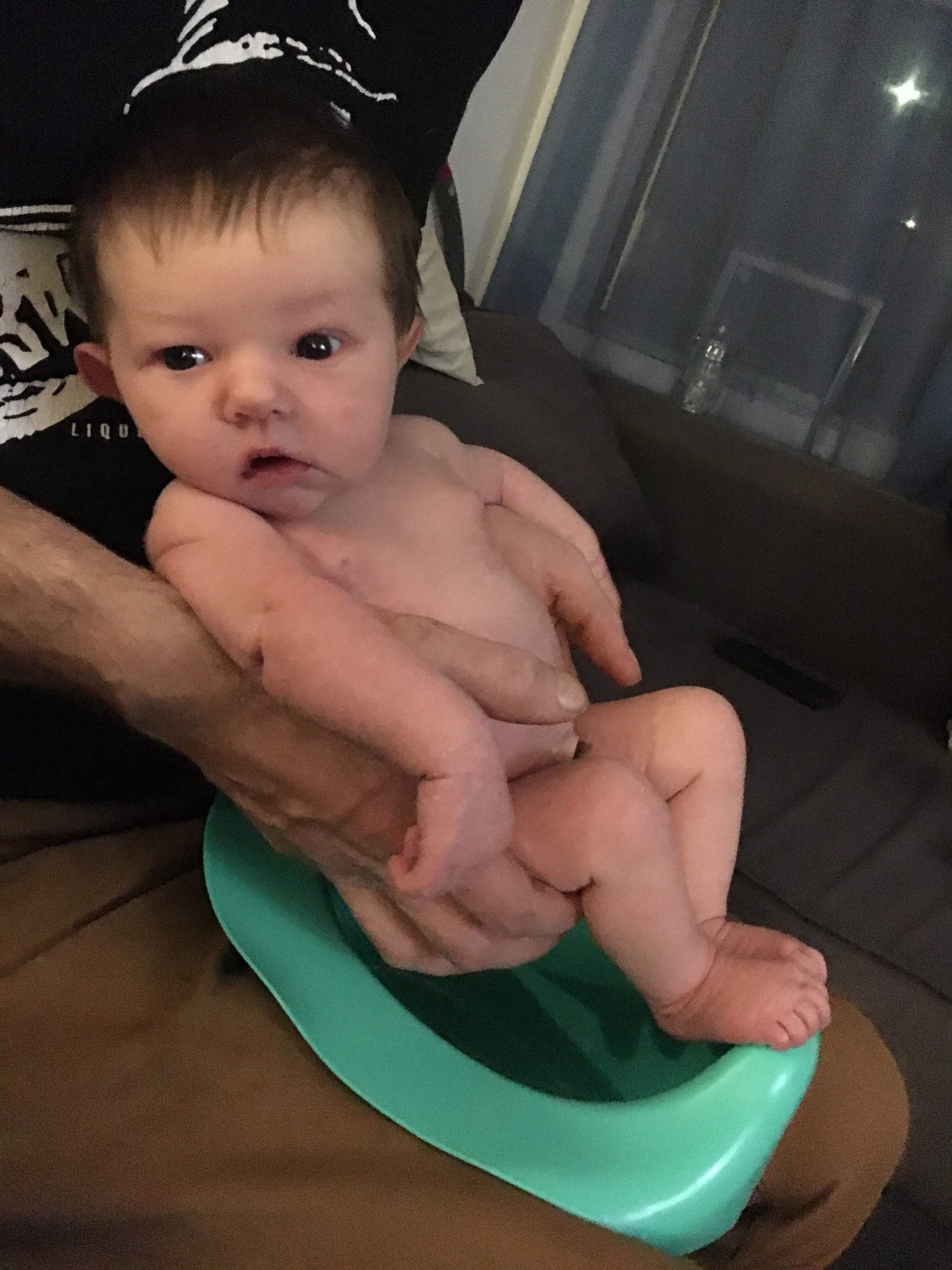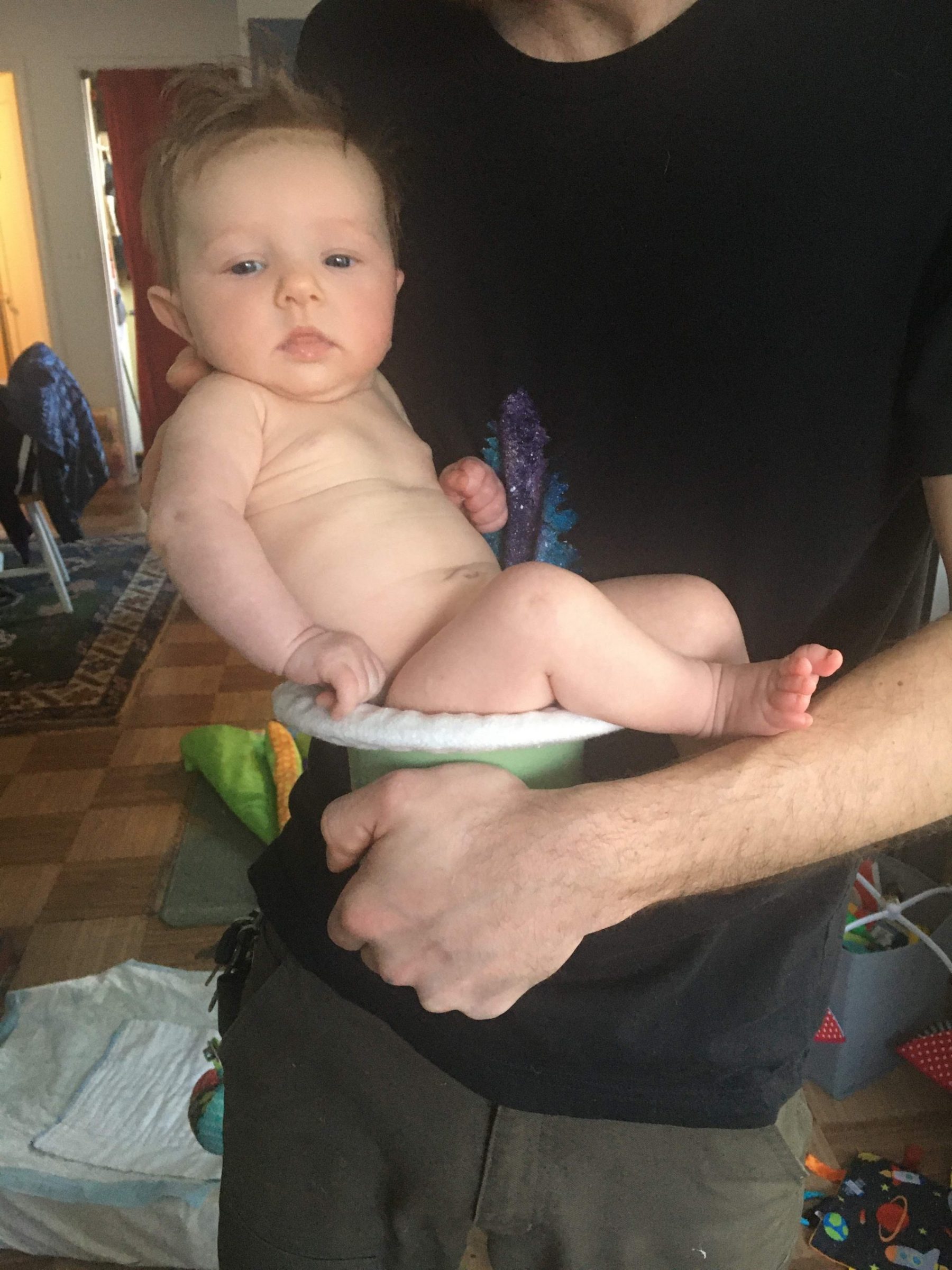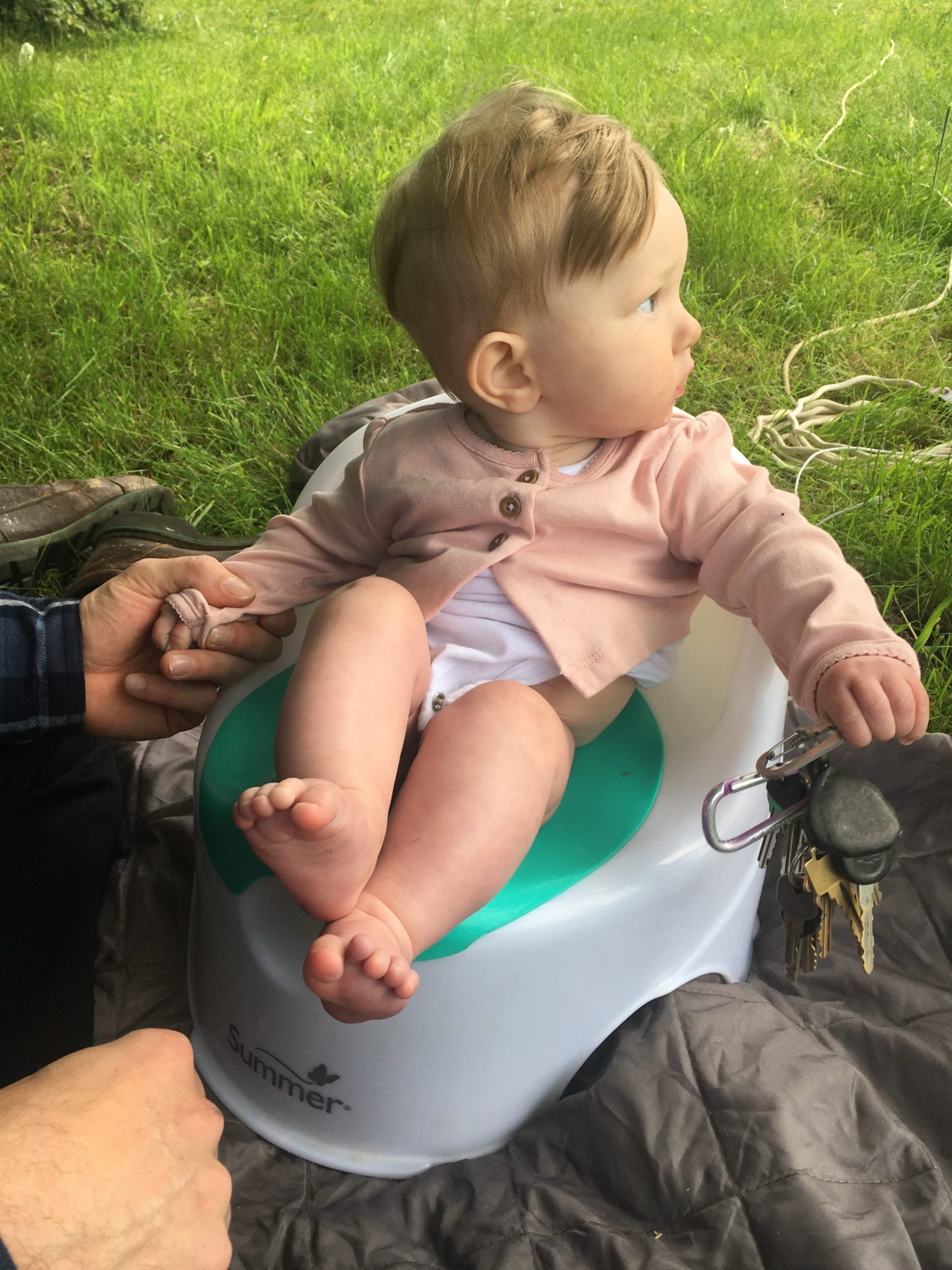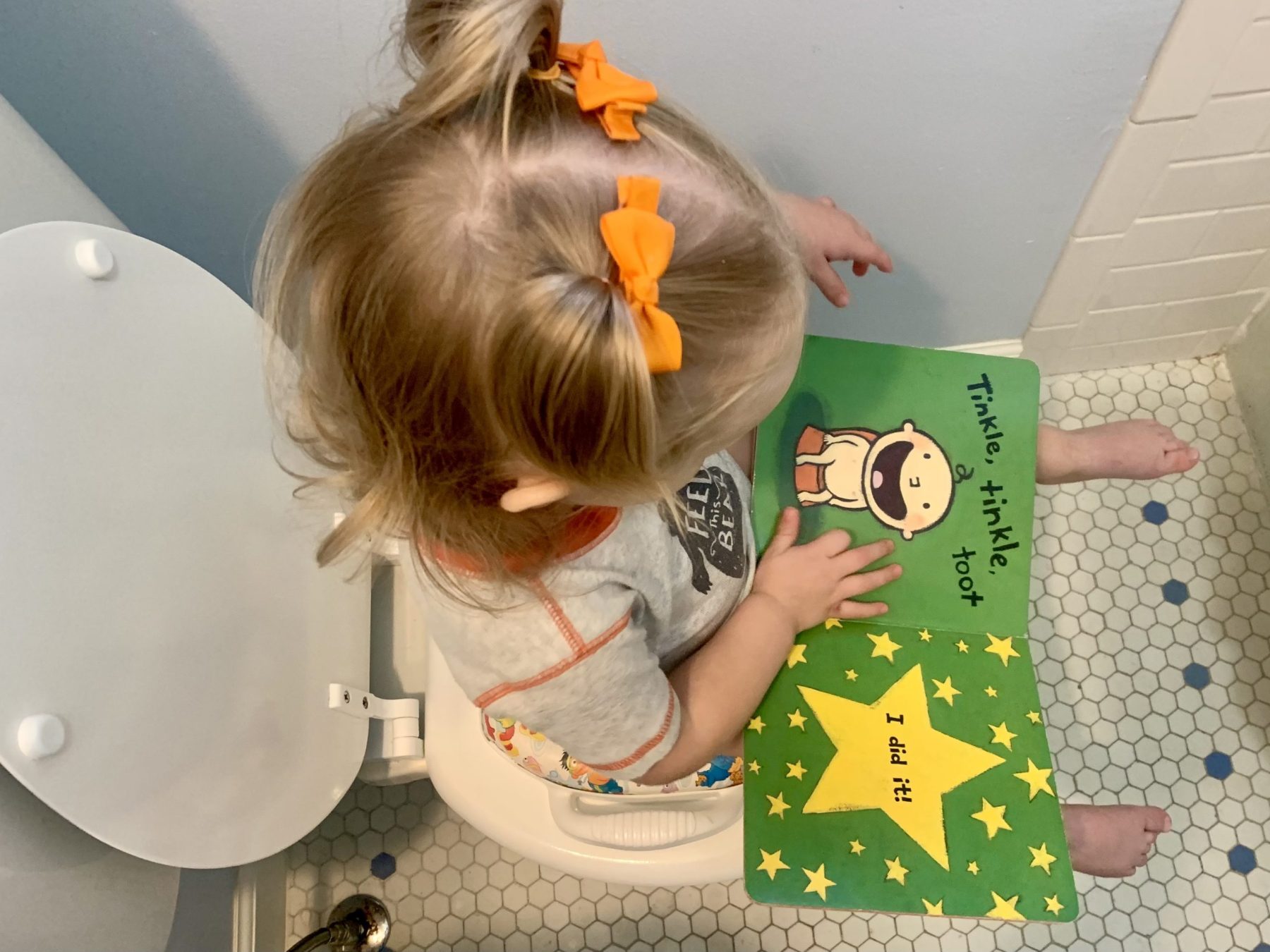6 Families Tried EC for a Year — Here’s What Happenedby Julia Deak Sandler, PhD - Sustainability Blogger at Re-ThinkGreen.com
Why would we do such a thing? Babies are born wanting to stay clean and eliminate in a way that doesn’t keep the waste pressed up against their skin. But these days, the norm is to “diaper train” kids to the extreme, having them put every pee and poo they’ve ever produced (since birth!) into a snug diaper. This practice sends 8,500 TONS of diaper waste to landfills just from the City of Seattle each year. It also causes lots of diaper rash, and makes potty training (the undoing of diaper training) feel like a huge, intimidating task to many a toddler and parent. From Babes in Arms to Babes on PottiesSo what happened when six families tried offering “pottytunities” to their babies as they grew over a whole year? The infants started in caregivers’ arms on a “top-hat” style potty, then moved to toilet seat reducers and big-kid potties. Thanks to several of our families for sharing photos that illustrate this progression! Some took to EC right away, even from birth! About half, however, took about three months until they were comfortable and confident getting their babies to eliminate when not in a diaper. This is where having a support group came in really handy. There were ups and downs. Families let their EC goals slide due to stress, whether it was from breastfeeding issues or new jobs or COVID quarantines. Kids inevitably went through stages where they had an “apparent dislike of sitting on the potty.” Some stages were just so active that they lost patience for sitting on the pot. But by the end of twelve months, all six families were catching lots, if not all, poops on the potty and loving it! They were also catching pee at least several times a week, and potty training was no longer daunting.
Part-Time EC is Awesome, too!They realized first of all, that it’s not all or nothing. No one ditched diapers completely. That’s not what this is about. It’s about seeing what your kid can do. Feeling amazed, you continue to communicate and build trust. EC can just be a first-thing-every-morning thing. Or do it after every nap, or more intensively, however it fits the family’s situation. “It’s not stressful for the baby,” one family noted. And everyone, whether part-timing it or going more full-throttle, started catching poops. Pooping in the potty from 6 months of age could be the new normalMy personal experience with EC was that catching poop in the toilet was the best and easiest part. Throughout the Ditch the Diapers Zero Waste Initiative, we’ve come to see this as one of the most important potential benefits of EC. First, we learned that with only monthly support, all families in our EC Challenge could find success catching poop once a baby had started eating solid food. And these families varied widely, from stay-at-home folks to those with nannies and daycare.
Second, we learned that “poop issues” during toddler potty training are way more common than we expected. So many kids who potty train at the typical ages of 1-and-a-half, two or older have very real fears and resistances to pooping on a potty or toilet. This can easily become the hardest part of potty training, but families can avoid it so easily by giving kids experience with potties from the time they first start solid food. And third, apparently disposable wipes are a huge problem for the Seattle sewer system, so much so that diaper banks have had to stop handing them out. We all wipe less for poop falling into a potty versus poop smeared on a child throughout their diaper area. And when wiping right away, toilet paper might even do the trick. To give you a sense of the joy that this practice brought our six challenge families, here are a few quotes:
-Shanti Herzog, mother of a 14-month-old EC paves the way for earlier Potty TrainingOur survey of 126 Seattle families found that 60% of those who did any EC at all ditched their daytime diapers by their baby’s 2nd birthday. 90% were done with daytime potty training by the child’s 3rd birthday. This compares quite well with the whole sample, where only 66% of kids were potty trained by age 3. The families in our EC Challenge say they feel good about potty training and will start it earlier rather than later. Even though they have laid the groundwork, they will need to go through potty training to hand responsibility to their kids for keeping themselves dry. Our Waste-Free Communities Matching Grant from Seattle Public Utilities has now come to an end. But there are still lots of ways to get help with EC and potty training. It’s great to learn about EC while still pregnant and start it from birth, but it can be started anytime with kids under age 1. Potty training and the real ditching of diapers is best started and finished between 18-30 months of age.
|
